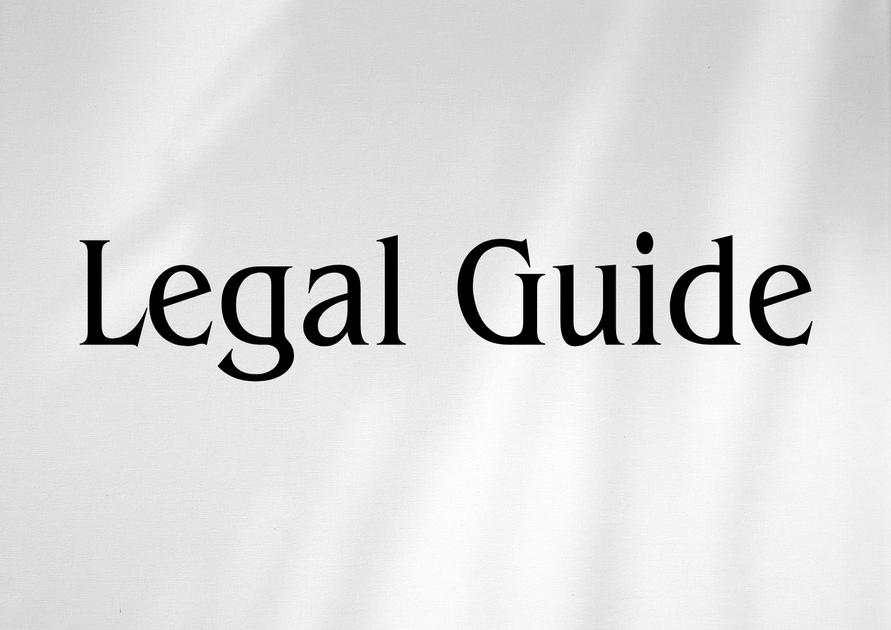Introduction
As the United Arab Emirates continues to consolidate its status as a global center for luxury travel, business aviation, and world-class hospitality, private jet operations and charter licensing have emerged as highly regulated and commercially significant segments of the UAE aviation market. With the introduction of Federal Decree-Law No. 20 of 2022 on the Regulation of Civil Aviation and relevant updates through 2025, the legal landscape has been reshaped to reflect international standards, ensure regulatory compliance, and fortify operational safety. Regulatory oversight has never been more robust, demanding that businesses, high-net-worth individuals, and charter operators strictly adhere to evolving rules governing airworthiness, licensing, commercial permits, and liability.
This article delivers an in-depth legal analysis of the regulatory environment surrounding private jet operations and charter licensing in the UAE. Drawing on authoritative sources such as the UAE Ministry of Justice, General Civil Aviation Authority (GCAA), and the Federal Legal Gazette, we offer practical guidance for stakeholders navigating the complexities of compliance, recent legal updates, risk management, and efficient structuring of operations. Whether you are a corporate executive evaluating private travel solutions, a charter company expanding your fleet, or a legal practitioner advising aviation clients, this analysis will provide the insights necessary for proactive decision-making in the UAE’s dynamic aviation sector.
Table of Contents
- Legal Framework: Key Laws and Regulatory Authorities
- Types of Private Jet Operations and Charter Models
- Licensing and Certification Requirements
- Key Legal Updates and Comparative Analysis
- Compliance, Risks, and Best Practice Strategies
- Case Studies and Hypotheticals
- Conclusion and Forward Guidance
Legal Framework: Key Laws and Regulatory Authorities
The Regulatory Backbone
The UAE’s regulation of civil aviation, including private jet operations, is principally governed by:
- Federal Decree-Law No. 20 of 2022 on the Regulation of Civil Aviation (replacing previous decrees, aligning closely with ICAO standards).
- UAE Civil Aviation Law (as updated through Cabinet Resolutions and GCAA implementing regulations).
- General Civil Aviation Authority (GCAA)—the federal regulatory body overseeing all aspects of airworthiness, certification, and safety.
- UAE Ministry of Economy—involved where foreign investment, commercial licensing, and economic zones intersect with aviation activity.
Key Mandates and Authorities
Any commercial or private aviation activity within the UAE’s airspace or at its airports is subject to GCAA supervision, separate approval by local aviation authorities in each emirate for airport slots and movement, and compliance with customs and immigration regulations. The legal regime is broad, encompassing:
- Air Operator Certificates (AOC)
- Private Operator Permits
- Crew licensing and medical approvals
- Aircraft registration in the UAE
- Insurance and third-party liability mandates
- Data protection, passenger manifests, and reporting obligations
Types of Private Jet Operations and Charter Models
Non-Commercial vs. Commercial Operations
The law draws a critical distinction between:
- Private (non-commercial) operations—where the operator uses the jet privately, with no fee-paying passengers (e.g., corporate shuttles, owner-operated flights).
- Commercial (charter) operations—where aircraft are leased or chartered to third parties for remuneration (air taxi, time-sharing, fractional ownership by groups).
Charter Arrangements Recognized under UAE Law
| Model | Description and Legal Considerations |
|---|---|
| Single-Entity Private Use | Operated by individual/corporate owner, no charter to others. Requires operator’s permit, airworthiness, and may face restrictions on cross-border activity. |
| Ad-Hoc Charter (On-Demand) | Operator offers aircraft for individual trip hire. Requires full commercial licensing (AOC), consumer protection compliance, and passenger manifest filing. |
| Fractional Ownership | Aircraft co-owned, use allotted via timeshare/balance. Often faces scrutiny for potential circumvention of commercial licensing mandates. |
| Aircraft Management Contracts | Owners contract charter/management company for regulatory and operational oversight; company must hold necessary permits. |
Local vs. Foreign Operators
Foreign-registered aircraft operations within the UAE face additional clearance steps (including overflight, landing permits, customs, and GCAA oversight). Special bilateral aviation treaties may offer certain rights to approved foreign carriers, but in general, chartering to UAE residents on a commercial basis requires a UAE-based operating license.
Licensing and Certification Requirements
Regulatory Gateways: What Is Required?
- Aircraft Registration: All aircraft based in the UAE must be registered with the GCAA. Foreign-registered private jets engaged in local commercial operations require temporary or dual registration if permitted.
- Air Operator Certificate (AOC): Mandatory for companies conducting public charter; this certificate confirms operational and safety compliance. (GCAA Civil Aviation Regulations Part II, Section 21)
- Private Operator Authorisation (POA): For non-commercial operations, especially for corporations or individuals who own and use aircraft solely for internal purposes.
- Charter Operating License: Businesses providing “air transportation for remuneration” must obtain a charter operating license from the GCAA, entailing strict audits, financial fitness checks, and demonstration of sufficient personnel and facilities.
- Crew Certification: All pilots and crew members must be licensed in accordance with UAE and international standards (including regular medical clearances).
- Insurance and Third-Party Risk: UAE law mandates comprehensive liability coverage (often beyond ICAO minimums).
- Operational Approvals: Compliance with security, surveillance, and customs requirements at UAE airports, including manifest reporting and flight data archiving.
Permit Application Process and Timelines
The process for securing a charter operator license or AOC typically involves:
- Initial eligibility submission to the GCAA.
- Review of corporate structure, ownership, and financial standing (especially for foreign investors under Cabinet Resolution No. 56 of 2021 concerning foreign participation in strategic sectors).
- Technical audit of safety management systems, crew training, aircraft maintenance, and emergency preparedness.
- On-site inspections and trial flight demonstrations.
- Grant of license (conditional or final), generally issued for a period up to five years, subject to continuous compliance.
Applicants should expect the process to span several months, with a strong emphasis on documentary completeness and real-time responsiveness to regulator requests.
Key Legal Updates and Comparative Analysis
From Past to Present: Legal Evolution
The UAE’s charter licensing framework has evolved rapidly. Below is a comparative table highlighting material changes affecting operators:
| Subject | Earlier Laws (pre-2022) | Current Law (post-2022 with 2025 updates) |
|---|---|---|
| Licensing Authority | Dual oversight (GCAA + local emirate aviation authorities) | Unified GCAA gatekeeping, integrated with Ministry oversight |
| Registration Requirements | Some foreign-operation leeway | Stringent UAE-based registration, especially for commercial charters |
| Financial Fitness | Proof of basic financial resources | Mandatory capital adequacy, detailed business plan, performance bonding |
| Crew Licensing | Legacy licensing recognition | Requirement for UAE-issued licenses; new recognition of ICAO equivalency standards |
| Consumer Protection | Nominal, not explicit | Explicit regime for passenger rights, charter contracts, and dispute channels |
| Data & Security | Basic reporting | Enhanced digital manifest requirements, anti-money laundering checks |
| Liability/Insurance | ICAO minimums | Market-appropriate coverage, open to adjustment by GCAA for high-risk ops |
Implications of Federal Decree-Law No. 20 of 2022
This new law, alongside subsequent implementing resolutions, not only harmonizes UAE aviation with international treaty obligations but also introduces:
- Increased accountability for operators—with higher penalties and suspension thresholds for non-compliance (see Penalties Table below).
- Mandatory safety management systems (SMS)—every licensed operator must demonstrate operational SMS capabilities.
- Robust anti-money laundering (AML) protocols—including Know-Your-Customer (KYC) checks for charter clientele, designed to prevent misuse of private jet operations for illicit purposes.
Suggested Visual: Penalty Comparison Table
| Violation | Old Penalty | Current Penalty (2022+) |
|---|---|---|
| Operating Without Valid AOC/License | Up to AED 100,000 fine, flight ban | Fines up to AED 3 million, possible criminal prosecution and permanent operation ban |
| Failure to Maintain Crew Licensing | Warning or time-limited suspension | Mandatory suspension, recurring offences trigger license revocation |
| Inadequate Insurance Cover | Fine/imposed coverage | Suspension, hefty fines, and flight detainment/impoundment |
Compliance, Risks, and Best Practice Strategies
Legal and Commercial Risks
- Unlicensed charter operations expose both operator and aircraft owner to substantial penalties, flight impoundment, and third-party liability claims.
- Inadequate insurance or failure to comply with enhanced Consumer Protection Guidelines (as issued by GCAA 2023 Notice 7) can result in breach of statutory duty, affecting enforceability of contracts and limiting access to UAE airspace.
- AML and KYC failures may trigger investigations not only by aviation regulators but also by the UAE Central Bank and Ministry of Interior.
Compliance Checklist for UAE Private Jet Operators
Suggested Visual: Compliance Checklist Table
| Item | Status | Responsible |
|---|---|---|
| Valid GCAA Registration | ✔️ | Operator/Aircraft Owner |
| Active Charter License/AOC | ✔️ | Charter Company |
| Crew Qualifications Up-to-Date | ✔️ | HR/Flight Operations |
| Insurance Certificates | ✔️ | Finance Dept. |
| SMS and Emergency Manuals | ✔️ | Ops/Safety Manager |
| KYC and Passenger List Procedures | ✔️ | Compliance/Legal |
Best-Practice Legal Strategies
- Conduct an internal or external audit referencing the latest GCAA circulars and guidance notes.
- Document all ownership structures and management contracts to clarify liability streams, particularly if using third-party managers or booking platforms.
- Align AML/KYC procedures with the guidance issued by Ministry of Economy (Cabinet Decision No. (10) of 2019 Regarding the Implementing Regulation of Federal Decree-Law No. (20) of 2018 on AML/CFT).
- Regularly review insurance thresholds and crew licensing currency against the latest GCAA minimums.
Case Studies and Hypotheticals
Case Study 1: Corporate Client Considering UAE-Based Aircraft
Scenario: An international logistics group based in Dubai is considering acquiring a Gulfstream jet for regional cargo and executive transport.
- Legal counsel highlighted the necessity of GCAA registration and obtaining either a Private Operator Authorisation (if dedicated to corporate usage) or full commercial AOC (if out-chartered).
- The client was advised that failure to observe UAE registration formalities and airworthiness directives could result not only in flight denials but also significant exposure in the event of an accident.
- Accordingly, comprehensive insurance and routine compliance audits were recommended.
Case Study 2: Charter Company Expanding into UAE
Scenario: A European charter operator wishes to base an aircraft in Abu Dhabi and offer charters in the UAE market.
- Legal review disclosed that a foreign AOC is insufficient; the operator must obtain a locally issued charter license or form a joint venture with a UAE entity with majority local ownership, in line with strategic sector rules.
- The operator underwent GCAA’s technical compliance audits, and contractual terms were tailored to UAE consumer protection standards, including refund rights and transparent flight conditions.
- Failure to localize insurance coverage or structure ownership appropriately would have disqualified the operation and potentially led to GCAA enforcement action.
Hypothetical: On-Demand Charter Arrangements via Digital Platform
Legal challenge: Are digital booking platforms (sample: Uber-like air taxi services) considered commercial ‘operators’ under UAE law?
- Analysis: Where the platform acts as more than a broker—i.e., holds economic control or operational responsibility—it must be licensed as a charter operator under latest GCAA guidance (2024 Update Notice 12).
- Failure to comply can expose the platform to licensing penalties, AML risk, and VAT non-compliance.
Conclusion and Forward Guidance
The UAE’s approach to regulating private jet operations and charter licensing is defined by both innovation and legal stringency, offering opportunity for growth but demanding high compliance standards. Recent legislative developments—from Federal Decree-Law No. 20 of 2022 to ongoing GCAA circulars—prioritize international best practices, enhanced consumer rights, and robust anti-abuse safeguards. This trajectory is expected to intensify, with more digital oversight, biometric identity checks, and real-time data sharing between regulators.
For institutional clients, airlines, corporate flight departments, and service providers, the most prudent course is not merely to react but to institutionalize compliance as a strategic value. This means continuous monitoring of regulatory updates, investment in compliance training, and proactive engagement with aviation counsel. Given the potential legal exposure, insurance implications, and reputational risk, rigorous due diligence and timely legal review are indispensable. Ongoing consultation with UAE-based legal experts will remain crucial for enabling growth, protecting interests, and navigating the evolving regulatory matrix of the UAE aviation market.
For a personalized legal assessment or to audit your aviation compliance program in the UAE, contact our consultancy team. We provide pragmatic, up-to-date advice to ensure seamless flights and enduring legal peace of mind.



